Blue Wolf
Cannabinoid THC Dominant
THC 8.38 - 9.38%
CBD 0.44 - 0.82%
Effect Giggly
Side Effect Low blood pressure
Flavor Spicyherbal
All AboutBlue Wolf Strain
THC
CBD
Potency
Blue Wolf is a distinctive hybrid marijuana that offers a unique combination of mild effects and a pleasant flavor profile. This cannabis has a THC level ranging from 8.38% to 9.38%, making it a perfect choice for those seeking a gentle and manageable high. The CBD content is generally low, usually below 1%. The aroma is a captivating mix of sweet berries and earthy undertones, with dominant terpenes such as myrcene, pinene, and limonene contributing to its delightful scent and taste.
Effects and Medical Uses
Blue Wolf strain provides a mild yet enjoyable high that starts with a subtle cerebral uplift, enhancing mood and focus without being overpowering. As the mental effects settle in, a light physical relaxation follows, making it suitable for daytime use. Medically, Blue Wolf weed is often used to relieve stress and anxiety due to its calming effects. It can also help with mild pain relief and muscle relaxation, offering a gentle solution for those with lower tolerance levels or seeking a less intense experience. Additionally, its uplifting properties can assist in managing mild depression and enhancing overall mood.
Growing Details
Growing Blue Wolf cannabis is relatively easy, making it a great option for beginner cultivators. It can be grown both indoors and outdoors. Indoors, Blue Wolf plants tend to stay at a medium height, making them manageable even in confined spaces. Outdoor plants flourish in a warm, sunny climate and can reach their full potential in such environments. With a flowering time of around 8-9 weeks, produces moderate yields of dense, aromatic buds. Regular pruning and maintaining proper humidity levels will ensure healthy growth and optimal results from this gentle yet satisfying strain.
Side Effects
Simply let us know how this strain tastes or write a detailed review.
Blue Wolf Strain Cannabinoids
| THC | Tetrahydrocannabinol, or THC, is a major cannabis chemical compound. It is a psychoactive element that stimulates dopamine release and induces euphoria or happiness. THC-rich strains may be helpful with such conditions as lack of appetite, chronic pains , etc. It is considered to be the primary active marijuana component. | 8.38 - 9.38% |
| CBD | Cannabidiol, or CBD, is a major compound in cannabis, which is non-psychoactive. It is also proved to counteract the side effects of the second major component THC. CBD is widely used for medicinal purposes in rubs, oils and so on. It is helpful in muscle pain cases, may treat arthritis and migraines. Even Greeks used it against pain, while Queen Victoria applied it to get rid of menstrual cramps. | 0.44 - 0.82% |
| CBC | Cannabichromene, or CBC, is a minor cannabinoid, meaning that its quantity in cannabis is quite little. Though it has the same origin as CBD and THC, it is different in functions. Without any psychoactive effects, it is an efficient cannabis compound in combating acne and depression. CBC produces analgesic, antibacterial and anti-inflammatory effects. | 0.2 - 0.55% |
| CBG | Cannabigerol, or CBG, is one of the minor cannabis compounds in adult plants. On the other hand, young ones contain a lot of this antibacterial and anti-inflammatory component. During the growth, CBG is converted into different cannabinoids, mostly THC and CBD. The compound itself increases appetite and decreases eye pressure. | 0.22 - 0.91% |
| CBN | Cannabinol, or CBN, is a trace element in cannabis that is considered to be mildly psychoactive. It appears from oxidation THC, exposed to light and heat. CBN is mostly contained in old cannabis and in traditional hashish. It is effective against insomnia, bacterial infections and appetite loss. | 0.04 - 0.18% |
| THCV | Tetrahydrocannabivarin, or THC-V, is a compound contained in cannabis in trace amounts. Even though it is close to THC molecularly, it is different in effects. This compound may be psychoactive only in large amounts. THC-V reduces blood sugar, controls appetite, stimulates bone growth, etc. African Sativa strains are the richest in THC-V. | 0.22 - 0.6% |
Blue Wolf Terpene Profile
| Pinene | Pinene is one of the most widespread terpenes in nature, found in pine trees, basil, nutmeg, parsley, and rosemary. Cannabis containing terpene (alpha-pinene or α-pinene) boasts a strong pine scent. Pinene is responsible for anti-inflammatory, pain-relieving, and anti-anxiety effects. | 0.15% |
| Myrcene | Myrcene (also known as β-myrcene) is one of the most common terpenes found in cannabis, representing more than 20% of the modern marijuana terpene profile. Myrcene has a distinct earthy, musky flavor, resembling cloves. It is responsible for calming and soothing effects of weed. Myrcene is also found in hops, thyme, mango, lemongrass, guava melon. | 0.21% |
| Ocimene | Ocimene (derived from the Ancient Greek word Ocimum meaning basil) is a terpene with sweet and herbaceous flavors, also boasting citrusy and woody undertones. Naturally, ocimene occurs in mint, parsley, orchids, hops, kumquats, mangoes, basil, bergamot, lavender, and pepper. Offers antifungal, anti-inflammatory, and antiviral properties. | 0.05% |
| Geraniol | Geraniol is a terpene initially contained in geraniums, as well as lemongrass, lemon peels, roses, blueberries, and carrots. The aroma is a sweet rose scent with notes of citrus. Geraniol features anti-inflammatory, antibacterial, antifungal, and neuroprotectant properties. It's rumored to have side effects such as allergic contact dermatitis or sensitive skin irritation. | 0.26% |
| Humulene | Humulene (also known as α-humulene) is one of the major terpenes found in cannabis, contributing to woody, earthy, spicy, herbaceous, and, mainly, floral aromas of cannabis. Used in modern medicine, humulene offers anti-inflammatory, antibacterial, and appetite suppressant effects, which have been well-researched by pharmaceutical companies. | 0.04% |
| Linalool | Linalool (also known as beta linalool, linalyl alcohol, linaloyl oxide, and p-linalool) is one of the rarest terpenes found in cannabis, mostly in small quantities. Linalool is known for its spicy and lavender aroma, bringing relaxation and calming effects. It is also said to provide anti-inflammatory and analgesic properties that can be useful for athletes. | 0.15% |
| Pulegone | Pulegone is a less-common terpene found in peppermint and catnip, for example, with a sweet and minty aroma. In small amounts, pulegone could be found in some cannabis strains. It is reported to offer anxiety-relieving effects, increased cognitive performance, and sedative properties. Could remove dizziness. | 0.07% |
| Caryophyllene | Caryophyllene (also known as beta or b caryophyllene) is a terpene found in many herbs and spices, such as black pepper, basil, rosemary, and oregano. Cannabis high in caryophyllene delivers a strong spicy, peppery aroma, resembling cinnamon and cloves. Caryophyllene offers potent anti-inflammatory and sedative effects. | 0.07% |
| Total terpenes content | 1.00% |
Growing Info
Similar Strains
THC 14.2 - 16.2%
CBD 0.24 - 0.53%
Effect Sleepy
Flavor Berry
THC 21.75 - 25%
CBD 0.5 - 0.88%
Effect Uplifted
Flavor Spicyherbal
THC 13.65 - 16.74%
CBD 0.02 - 0.29%
Effect Talkative
Flavor Pungent
THC 16.4 - 19%
CBD 0.28 - 0.46%
Effect Happy
Flavor Citrus
THC 16.75 - 19.75%
CBD 0.68 - 1.09%
Effect Sleepy
Flavor Skunk
THC 15.28 - 18.42%
CBD 0.33 - 0.85%
Effect Happy
Flavor Berry
THC 14.5 - 16.5%
CBD 0.31 - 0.66%
Effect Relaxed
Flavor Apple
THC 19 - 21.67%
CBD 0.46 - 0.7%
Effect Relaxed
Flavor Spicyherbal
THC 10.72 - 16.98%
CBD 0.02 - 0.29%
Effect Creative
Flavor Violet
THC 22 - 22%
CBD 0.89 - 1.03%
Effect Happy
Flavor Lime
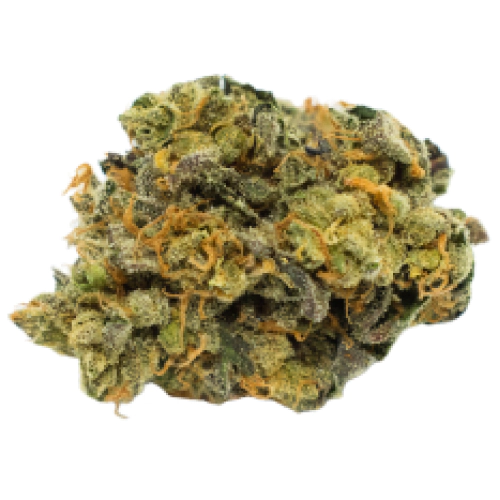
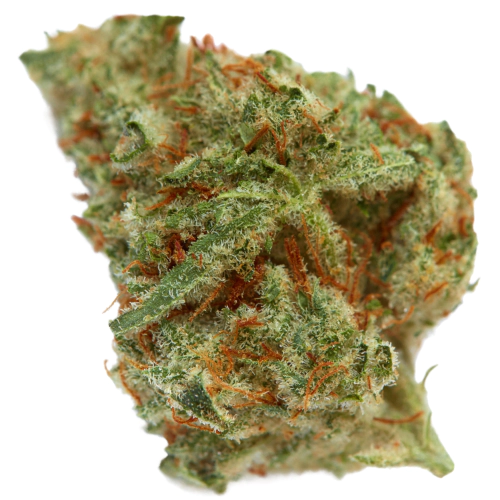
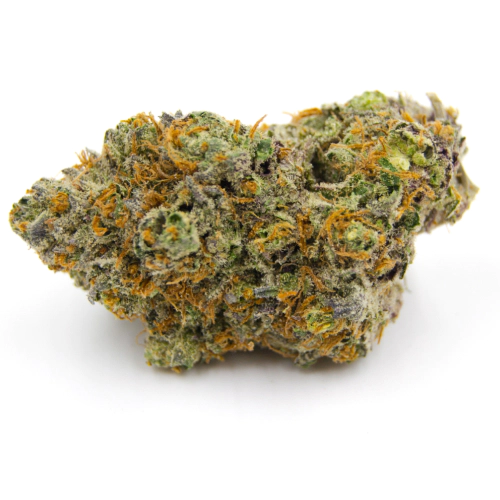
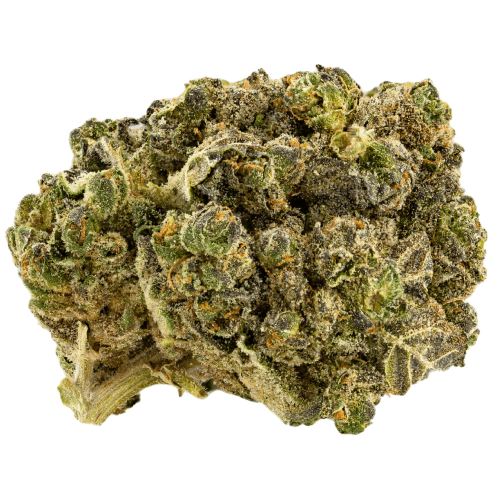
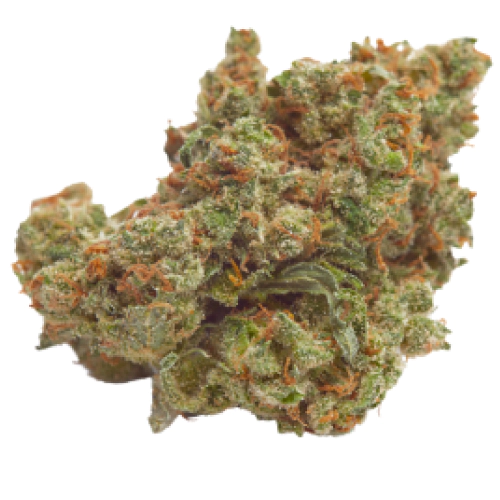
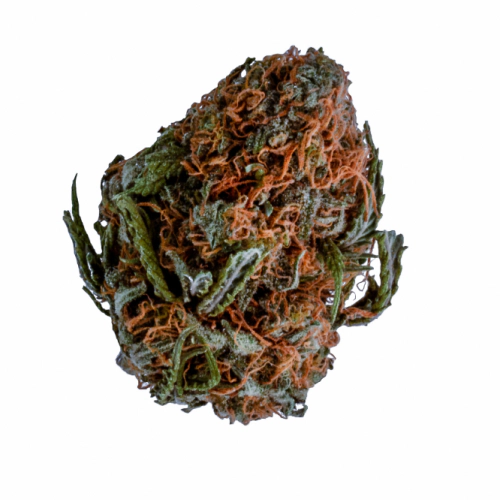
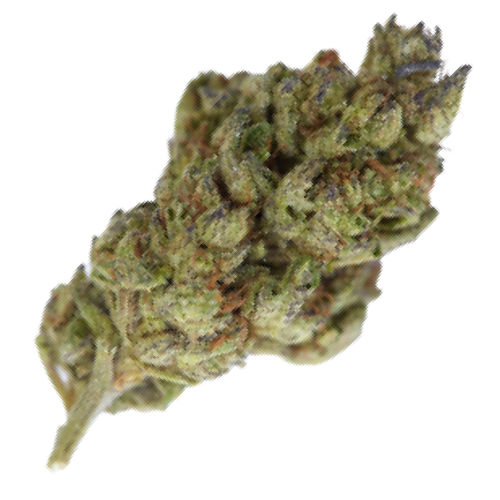
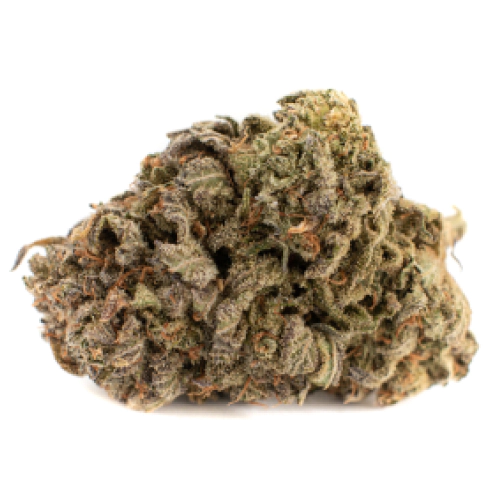
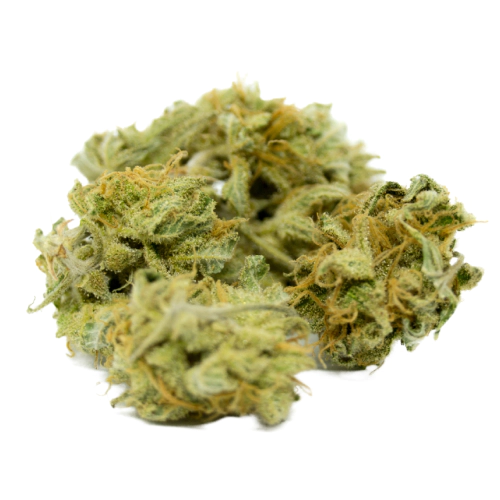
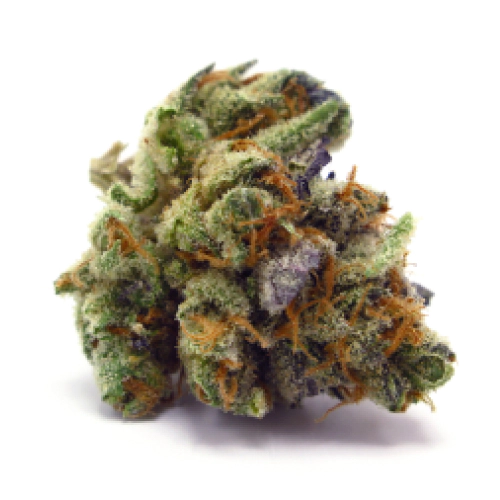
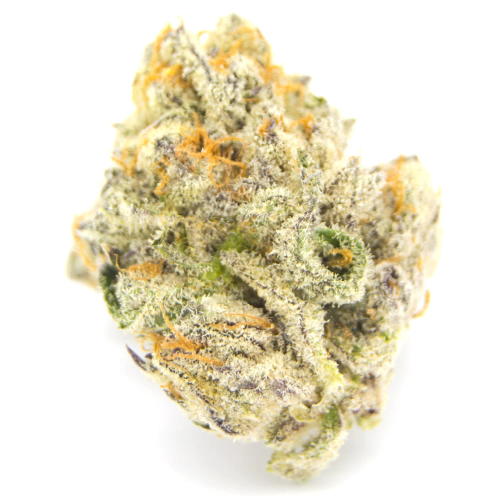
Be the first and share your opinion
Write a Review